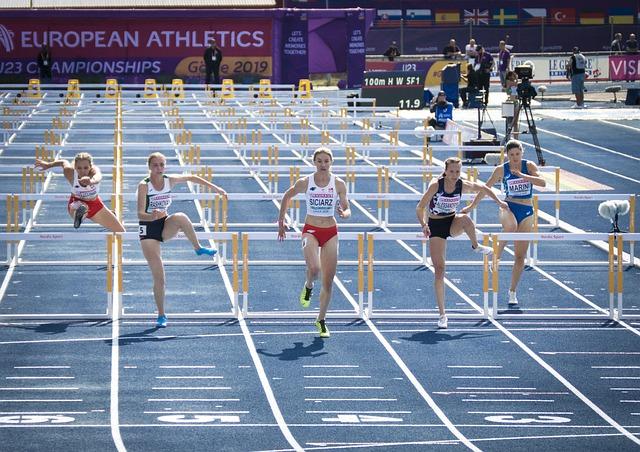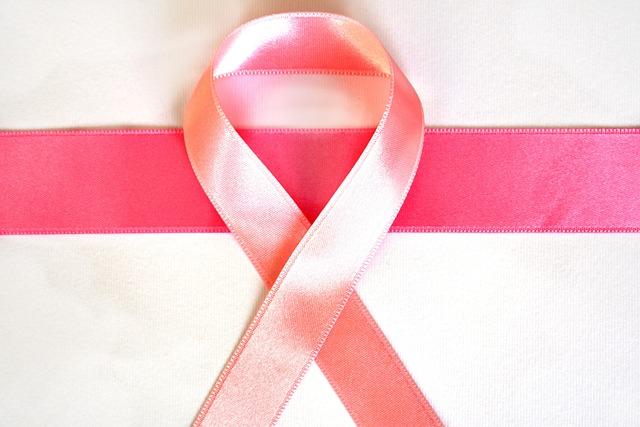In a heartbreaking chapter for the Georgia Southern University community, the sports world is mourning the loss of an 18-year-old football player who bravely fought a valiant battle against cancer. According to reports from FOX 5 Atlanta, the young athlete, admired for his talent and tenacity on the field, passed away recently after enduring meaningful health challenges. This tragic event not onyl marks a profound loss for his family, friends, and teammates, but it also underscores the ongoing struggles faced by young athletes grappling with serious health issues. As the university and its supporters come together to honor his memory, the impact of this loss ripples through the campus and beyond, reminding us of the fragility of life and the strength of community in times of adversity.
Tribute to a Rising Star: Remembering the Legacy of the Young Athlete
The sport of football has lost a beacon of hope and talent in the untimely passing of the 18-year-old Georgia Southern University player. In his brief yet impactful life, he exemplified resilience and passion, demonstrating a commitment to both his teammates and the game he loved. His journey was not only marked by athletic prowess but also by an inspiring battle against cancer,one that captivated the hearts of fans and friends alike. His dedication on and off the field, combined with an unwavering spirit, left an indelible mark on the community surrounding the university.
As we reflect on his life, we remember not just his accomplishments as an athlete but also the kindness and humility he displayed. Through his perseverance, he taught us valuable lessons about courage and fighting against adversity. Key highlights of his legacy include:
Exceptional skill: His agility and tactical understanding of the game made him stand out as a promising player.
Leadership Qualities: As a leader among his peers, he inspired his teammates with his determination and work ethic.
Community Involvement: Actively engaged in local outreach initiatives, he sought to uplift others even in his struggles.
In addition,the university plans to honor his memory through various tributes,from memorial services to scholarships that will support aspiring young athletes facing similar battles. The impact he made during his short time on this earth has proven that true legacy is not just about records and stats, but the hearts we touch along the way.In tribute to his enduring spirit,a table highlighting some of his milestones will serve as a reminder of what he achieved and the inspiration he leaves behind:
Milestone
Year
High School State Champion
2021
Georgia Southern Starting player
2022
Community Service Award
2023

Understanding the Impact of Cancer on Young Athletes and Their Families
The devastating loss of an 18-year-old georgia Southern University football player illuminates the profound impact that cancer can have not just on the young athletes battling the disease, but also on their families and communities. Young athletes, often accustomed to the rigors of sports, find their lives upended by a diagnosis that tests their physical and emotional strength.They face a grueling journey that includes prolonged hospital visits, ongoing treatments, and the psychological toll of uncertainty.The mere specter of cancer challenges their identity as athletes, often leaving them feeling isolated from their peers and the sporting world they love.
The ramifications of such a diagnosis extend beyond the individual, deeply affecting families who grapple with the emotional strain and financial burdens of treatment. Families often find themselves in challenging situations where decisions must be made about balancing care responsibilities with everyday life. Consider the following impacts on families during a young athlete’s battle with cancer:
Emotional Strain: Increased anxiety, depression, and stress are common as family members support their loved one.
Financial Burdens: Medical costs and potential loss of income can strain family finances, creating additional stress.
Disruption of Daily Life: Routine activities, schooling, and relationships can be disrupted as families focus on care and support.
In navigating this challenging landscape,support systems become essential. Many families rely on community resources, including support groups, counseling services, and financial aid to help shoulder the burden. As society continues to recognize the challenges faced by young athletes battling cancer, there is a growing need for awareness and advocacy to ensure these young warriors recieve not only medical treatment but also the emotional and social support necesary for survival.

community Response: How Georgia Southern University and Fans are Mourning
The news of the young football player’s passing has sent shockwaves through the Georgia Southern University community. Students, faculty, and alumni are coming together to remember him not just as an athlete but as a cherished member of their family. Many have taken to social media to express their grief,sharing heartfelt messages and fond memories of the time they spent with him. Vigils and gatherings are being organized across campus to honor his legacy. These events have become a poignant reminder of his strength and the profound impact he had on those around him. Attendees describe the atmosphere as one filled with both deep sorrow and a festivity of life.
Fans have also shown their support by wearing GOLD in his honor at recent games, creating a sea of color that symbolizes solidarity and remembrance. The football team has dedicated their upcoming match to this brave young man, promising to play with the same passion and determination he exhibited in his fight against cancer. In support of his family, the community has initiated fundraising efforts aimed at helping with medical expenses and creating a scholarship in his name. A simple table below outlines the key activities organized by the community:
Event
Date
Purpose
Memorial Vigil
September 30
Celebrate his life and support his family
Game Day Tribute
October 7
Honor his legacy on the field
Fundraising Drive
Ongoing
Assist family with medical expenses

Advocacy for Early Detection: Promoting Awareness and Support for cancer Research
The recent passing of an 18-year-old Georgia Southern University football player has reignited the conversation about the critical importance of early cancer detection. Awareness campaigns and community support are essential in combating this aggressive disease, as they can lead to timely diagnoses and improved treatment outcomes. when individuals are informed about the risk factors and symptoms associated with cancer, they are more likely to seek medical advice and screenings, substantially enhancing the chances of prosperous intervention. Key initiatives that can be supported include:
Educational Workshops: Hosting events to educate athletes and their families about cancer risks.
Screening Programs: Providing accessible cancer screening services within communities.
Fundraising for Research: Encouraging local businesses and organizations to support cancer research initiatives.
Personal Stories: Sharing experiences from survivors and families affected by cancer to motivate proactive health measures.
Along with awareness, dedicated support for cancer research is vital for developing innovative treatments and improving existing ones. Funding and resources directed towards research initiatives not only elevate understanding of cancer but also pave the way for groundbreaking discoveries. Collaborative efforts from educational institutions, healthcare providers, and community members can significantly enhance research capabilities. This table outlines the contributions of various stakeholders in promoting cancer research:
Stakeholder
Role in Research
Potential Impact
Universities
Conduct studies and experiments
Advance medical knowledge
Nonprofits
Fund research initiatives
Support innovation in treatments
healthcare Providers
Implement findings in practice
Enhance patient outcomes
Community Members
participate in awareness events
Increase public engagement

Lessons Learned: The Importance of Mental Health Support for Student-Athletes
The tragic loss of a young athlete serves as a stark reminder of the profound challenges that student-athletes often face, both physically and mentally. While the spotlight is frequently on athletic performance, the emotional and psychological well-being of these individuals deserves equal attention. Student-athletes are not just competitors on the field; they are also students navigating academic pressures, societal expectations, and personal struggles. Increasingly, these stressors can culminate in a mental health crisis that, without appropriate support, becomes insurmountable.
In light of recent events, it is indeed crucial for academic institutions and athletic programs to implement comprehensive mental health support systems tailored for student-athletes. Key elements of a successful program should include:
Access to Counseling Services: Ensure that mental health professionals are readily available and that athletes feel safe seeking help.
Training for Coaches: Equip coaches with the tools to recognize mental health issues and provide appropriate support to their athletes.
Promotion of Mental Wellness: Incorporate mental health education into training regimes, emphasizing its importance alongside physical conditioning.
Peer Support Systems: Foster a culture of openness where athletes can discuss their mental health experiences with one another.
To further explore the impact of mental health awareness in athletics, consider the following data that highlights the growing need for support:
statistics
Percentage
Student-athletes experiencing anxiety
34%
Student-athletes indicating burnout
50%
Student-athletes feeling comfortable seeking help
20%
Addressing these statistics is essential for promoting a healthier environment. As the conversation around mental health gains momentum, it is indeed imperative that we prioritize the well-being of student-athletes, enabling them to thrive both in their sports and in life beyond the field.

Future Initiatives: Ensuring improved resources for Young Athletes Facing Health Challenges
In the wake of the tragic loss of young athletes like the Georgia Southern University football player, it is indeed critical to invest in future initiatives that provide comprehensive support for athletes facing health challenges.These initiatives should include the progress of enhanced health monitoring systems, which could involve regular screenings and assessments to detect potential health issues early. By leveraging technology, universities can create a digital health profile for each student-athlete, allowing coaches and medical staff to manage their wellness proactively.
Moreover, establishing mental health resources tailored specifically for athletes can prove invaluable. This can be achieved through the integration of sports psychologists in regular training sessions, as well as workshops focusing on resilience and coping mechanisms. To promote awareness and foster a culture of open dialog, universities can implement peer support programs, where athletes engage in discussions about their experiences, thereby creating a community of understanding and encouragement.
Initiative
Description
Health Monitoring Systems
Implement regular health screenings and assessments for early detection.
Mental Health Resources
Incorporate sports psychologists in training to address mental well-being.
Peer support Programs
Foster community discussion to raise awareness and share experiences.

Insights and Conclusions
the passing of the young Georgia Southern University football player, who bravely battled cancer at just 18 years of age, sends ripples of grief through the local community and beyond. His determination, both on and off the field, serves as an enduring reminder of the resilience of the human spirit in the face of adversity. As friends, family, teammates, and fans come together to honor his memory, it is indeed crucial to recognize not only the tragedy of loss but also the impact he made during his short life. Initiatives to support cancer research and awareness may arise from this tragedy, highlighting the importance of community solidarity and the ongoing fight against this formidable disease. Events celebrating his legacy will undoubtedly emerge, ensuring that his spirit continues to inspire future generations of athletes and individuals alike.
Author : Asia-News
Publish date : 2025-03-07 13:39:21
Copyright for syndicated content belongs to the linked Source.